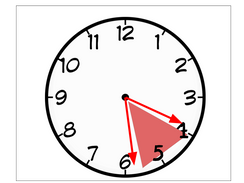Rose basketball highlights
Answers to recent actor strike have been found
MON.| 12-11-23 | ENTERTAINMENT
The recent U.S. actor strike has caused disruptions within the film industry. Screen Actors Guild-American Federation of Television and Radio Artists (SAG-AFTRA) have voiced two main reasons for going on this strike, the amount of income and the misuse of artificial intelligence (AI) in film. After four months, the studios and actors came to an agreement and settled.
Due to this strike, there have been fewer new releases on the screens. This is leading to the failure of some studios, as people are becoming increasingly less interested in re-watching older productions. Without actors, studios can’t produce anything, therefore being forced to manage a new conflict, bankruptcy.
I love seasonal shows and movies, but this year there has been nothing new to watch. There haven't been any new shows people rave about, so I'm always finding myself re-watching the same shows frequently.
Actors made the decision to go on strike after being denied the request of an 11% raise to baseline rates this year and an 8% raise over the next two years. They were offered a compromise from the studios of 5% this year and 7.5% in the next two years. The pay does seem unfair and they shouldn’t be asking for as much as they were, but they should be offered more than this. Due to inflation, this is all the studios can afford to give their actors. They needed to agree on a compromise, and this is where the strike began.
Actors should take what is available, especially if they’re upcoming actors trying to become famous or grow their reputation. Sometimes you have to take certain opportunities, depending on who you are as an actor, even if you don’t agree with the credit or amount of money you're given. Going on strike because of your income thoroughly decreases your chances of being a face that the world recognizes.
Another cause of this strike has been the use of AI. AI has become a big topic of discussion lately as it advances in its technology. The studios previously proposed that background performers have their faces scanned. This scan would then be owned by the studios forever, while the actors being used only receive one day's worth of pay. They would have the ability to use it whenever or for whatever without requiring consent from the actor. The actors went on strike in hopes that if the studios didn’t have their faces to scan, they would give them their original jobs back.
While AI is very impressive and can have many benefits, it doesn't always belong in the acting world. It becomes a problem when it starts to take away from someone's opportunities. People live off of the money they make, even with smaller roles. It's unfair to the actors for the studios to almost completely give away an actor's job just because it's the easier route.
On Friday, November 10th, the SAG-AFTRA strike came to an end after The Hollywood Actors Union board voted and approved a deal. This deal means actors will get a 7% general wage increase, with another 4% increase in July and another 3.5% a year after that. Background actors, who don’t have a speaking role and are sometimes referred to as extras, were approved
for an 11% increase, with the same 4% and 3.5% increases in the coming years. From the AI standpoint, the studios must have consent from the actors to use the scan of their faces. Let’s hope we see success with this new compromise.


















